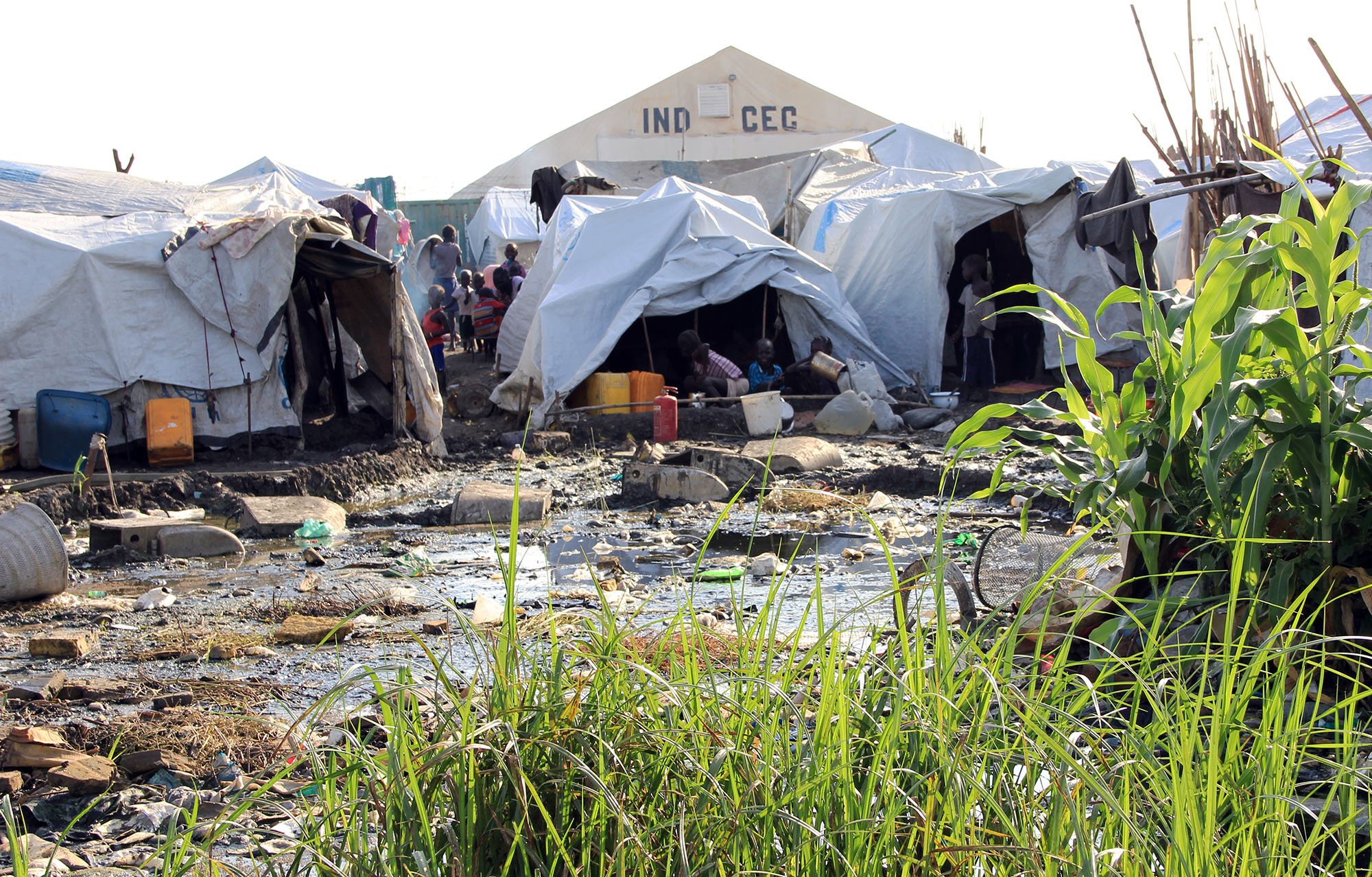Patients treated by MSF in Malakal PoC triples as living conditions jeopardize health of thousands

Nov 18, 2015
The number of patients treated by MSF on a weekly basis in the UN Protection of Civilians Camp (PoC) in Malakal has tripled since June, as the health of the population sheltering in the camp is being jeopardized by overcrowding and substandard living conditions. Presently, almost 48,000 people are living in the Malakal PoC following an influx of more than 16,000 people in July and August. Many came from areas where humanitarian access was cut off by insecurity for months, forcing thousands to flee from conflict and hunger. Most people arrived with nothing.
“The sickness of our patients is directly related to the overcrowded and deplorable conditions in which they are living,” says Monica Camacho, MSF program manager for South Sudan. “More space must be immediately allocated for the population seeking shelter and humanitarian actors must urgently improve the provision of basic services and necessities.”
Since June, the number of medical consultations provided weekly by MSF has more than tripled. The number of consultations provided for children under five years old, who are the most vulnerable in these conditions, has increased five-fold. In recent weeks, the MSF hospital has been filled beyond its capacity with children suffering from life-threatening cases of pneumonia, malaria and other illnesses. The number of patients treated for severe respiratory tract infections has already tripled since September. With the onset of the cold season, pneumonia is a particular concern given the crowded and unhygienic conditions. MSF fears these trends may worsen unless conditions are urgently improved.
Thousands of new arrivals are suffering in the worst living conditions, sheltering in makeshift shelters in swamped areas of the camp not designated for habitation and which lack adequate access to water and sanitation. Children play in filthy mud surrounded by barbed wire and trash. Seven thousand other new arrivals, most of whom are women and children, have been relocated to a contingency area that’s been adapted to accommodate IDPs. In this area, people live in classroom-sized communal tents, shared by more than 50 people. These families have less than 4.5 square meters of total living space per person, far below the 30 square meters required by international humanitarian standards.
Living conditions and sanitation are inadequate throughout the entire camp. Only about half a square kilometer has been designated by the United Nations for displaced people to live in, comprising a population the size of a small city. The overall living space for the population is barely more than 10 square meters per person, a figure which includes pathways and other spaces not used for habitation. In the most populated areas, there is only one latrine for every 70 people, less than one third of the ratio required by humanitarian standards. Access to clean water also hovers below acceptable levels and many families lack access to essential household items such as blankets.
Many people have been living in the Malakal camp seeking protection from violence and conflict since conflict erupted in December 2013. In 2015, the population of the camp has more than doubled following an influx of 10,000 displaced people in April and a further 16,000 in July-August. MSF operates a 50-bed hospital, including a 24-hour emergency room in the hospital and a detached emergency room inside the PoC.





Leave a Comment